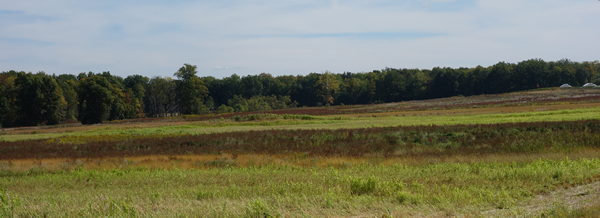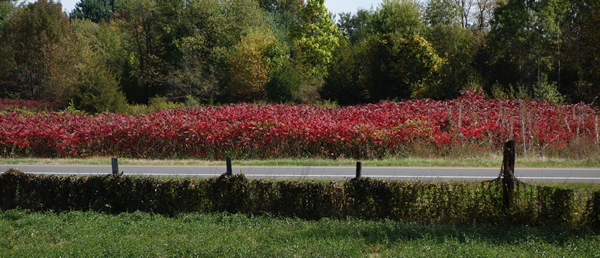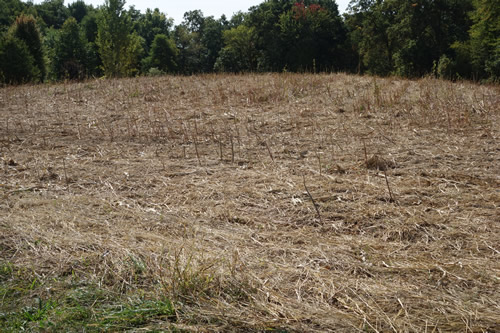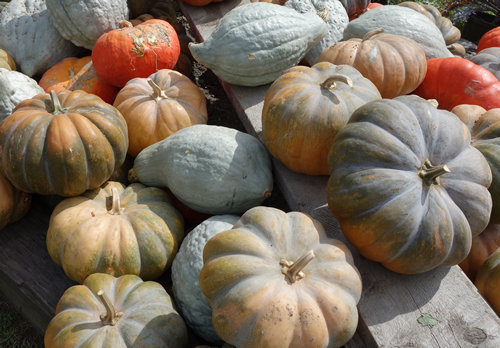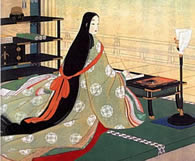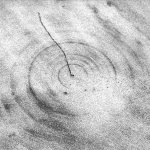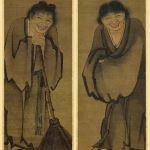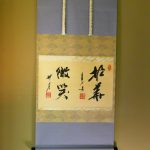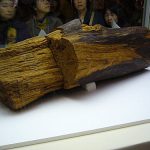Things that just keep passing by
Sei Shonagon lists “Things that just keep passing by: A boat with its sail up. People’s age. Spring. Summer. Autumn. Winter.”
This autumn there are some very cool days and one thinks about changing clothes to wools and long sleeved flannel shirts. But then the very next day the temperature soars into the 70s and there is renewed hope that the summer will linger forever though signs in the garden tell us winter is quickly approaching.
Sunsets and sunrises are lavish with color. Pale pinks and oranges flood the sky. Trees and shrubs wear a brocade of woven hue: reds, oranges, pale green, and brown. Ferns and grasses spell the end of the year, dahlias and salvias throw out the best of the season. It is truly a splendid time.
- Ferns
- Japanese Anemone
- My favorite shrub Disanthus
- More ferns
- Grasses
- Dahlia ‘Franz Kafka’
- Mix of Dahlias
It is delightful when there has been a dawn rain
It is delightful when there has been a dawn rain shower and then when the early morning sun comes out drops of water on the leaves sparkle like millions of diamonds.

I suddenly looked around
It’s late September and yesterday was the first day of autumn – officially. The days have been getting colder but I’ve been more concerned about the drought we’re in and the new plants I need to keep watered to notice much else.
But today I drove to town and everything seems to have changed. Even the most ordinary things are beautiful: farm fields, newly harvested squash, an old rusty fence.
Things That are Near Though Distant
Sei Shonagon is very brief in her list of ‘Things That are Near Though Distant’. She lists:
- Paradise
- The course of a boat
- Relations between a man and a woman
I’m sure she’d agree with my addition of Rainbows
Nothing is more splendid than rank
Sei Shonagon said there is “…nothing more splendid than rank”. She was referring to the rank of nobility in medieval Japan. But I’m referring to my nephew Nick LaCava and his bid for the US Olympics. We leave for Switzerland on Friday to cheer his boat, the Lighweight Mens 4, in qualifying for the 2012 Olympics in London. I can’t believe it.
In case you don’t know, rowing is a demanding sport. Just take a look at Nick in this photo (he’s the one wearing sunglasses in the lower right)
The London Times says
“You don’t have to be super-skilled to be good at rowing; there’s basically just one simple sequence of movements to learn in order to master the technique.
The hard part is repeating that sequence, up to 40 times a minute, for six or more minutes. Strength and endurance are obviously essential. If you are rowing in a crew, synchronisation and teamwork are also necessary.
Also, before we forget, size does in fact matter in rowing. In 2007 Dr Niels Secher, an exercise scientist at the University of Copenhagen, was able to predict the speed of rowers accurate to one per cent based on their body size and weight of their boat.
He found that taller, more muscular rowers (often over 6ft 3in and 15st) with low levels of body fat were able to get more oxygen in their muscles and generate more power.”
I think the London Times is understating things a bit. Rowing is a punishing sport that requires tremendous drive, endurance and years of dedicated training.
We’re hoping that Nick and his boat will qualify for the Olympics. We’ll know by next Wednesday. But even still, to get this far is an incredible achievement. A well known Zen phrase is ” Buji Kore Kinin”. Translated this means “A noble man is one without rank” or “True man without rank”. As Zen students this is what we aspire to in our practice. In Nick’s case, we’re thrilled at his ranking – just as it is.
Note: Nick did make it to the 2012 London Olympics and they did really well. He’s now going back to Grad school but misses the competition on the water.








